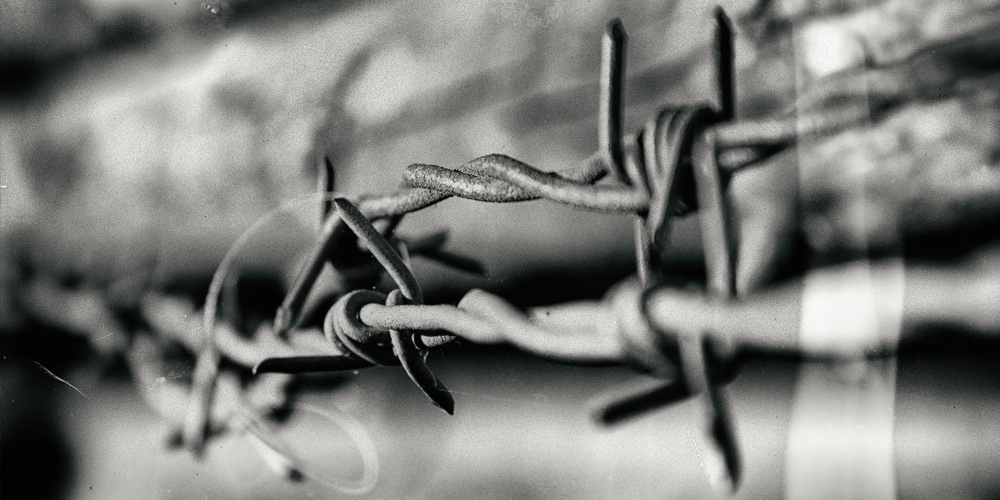
Marina Tsvetaeva had the good fortune of being born into a well-to-do Moscow family, but the bad fortune of living through the Bolshevik revolution. Her husband had been executed by the Soviets, but not before one daughter died of starvation in a Moscow orphanage and another had been sent to a labor camp. In 1941, at a wizened 48, Marina Tsvetaeva hanged herself.
Despite the hardships (or maybe because of them), Marina Tsvetaeva wrote some of the twentieth century’s greatest Russian poetry. But she was dark. Her hellish brooding made Sylvia Plath and Anne Sexton sound like happy American housewives writing happy little ditties celebrating the American dream. They weren’t—(Sylvia gassed herself in the kitchen, Anne, ditto, the garage). Yet neither woman faced anything like Marina did, which could explain the lines:
“There has been
too many funerals held by now
for an Eden you have never seen
whose fruit you have never tasted.”
Ouch! Amid the rhythm of Marina’s bitter hymn, the point’s well-made. Why should we suffer for a sin that occurred long before we did, in a place that no longer exists here? We weren’t in Eden and we didn’t eat from the forbidden tree—yet we bear the sordid consequences of those who were and did.
How just and fair is that?
It’s neither, but since when was anything just and fair about sin and evil? Those adjectives no more accurately modify evil than “good” and “righteous” do. If anything were just and fair about evil, then evil could, possibly, be rationalized, even justified, and who wants that? (Imagine heaven, the Millennium, the books opened, “the hidden things of darkness” [1 Cor. 4:5, KJV] revealed, and a woman declares: Yes, now I finally understand why my 14-year-old daughter was sexually assaulted by soldiers and then burned alive before me. Yes, I can see that it was just and fair after all. Hallelujah, Jesus!)
It’s not just and fair that we should suffer for Adam’s sin, just as it was not just and fair that thousands of children born after Chernobyl should have birth defects from incompetence that they had nothing to do with.
Nor was it just and fair that Jesus on the cross should face the punishment for sins He did not commit. We know the famous Ellen White statement: “Christ was treated as we deserve, that we might be treated as He deserves. He was condemned for our sins, in which He had no share, that we might be justified by His righteousness, in which we had no share. He suffered the death which was ours, that we might receive the life which was His.”
He was treated as we deserve (unfair); He was condemned for our sins (unjust); and He suffered the death that was ours (unjust and unfair). Even the Lord Himself suffered unjustly and unfairly for sin and evil.
But notice the other halves of those statements. He suffered unjustly and unfairly so that we might be treated as He deserves; that we might be justified by His righteousness, in which we had no share; and that we might have the life that was His. We no more justly and fairly face the consequences of the cross than we justly and fairly face the consequences of Eden.
“For if, by the trespass of one man, death reigned through that one man, how much more will those who receive God’s abundant provision of grace and of the gift of righteousness reign in life through the one man, Jesus Christ! Consequently, just as one trespass resulted in condemnation for all people, so also one righteous act resulted in justification and life for all people” (Rom. 5:17, 18).
We weren’t in Eden when Adam sinned; we weren’t at the cross when Christ died. Yet the cross answers Eden. One man, Adam, brought sin, condemnation, death; another man, Jesus, brought justification, righteousness, life. None of us were even zygotes when Adam fell, and most of humanity hadn’t yet been born when Christ died.
So just as we were condemned by what we had nothing to do with, we are saved by what we had nothing to do with as well. Our works didn’t first bring us death, and they can’t save us from it, either. Condemnation occurred outside of us; redemption must, too.
Yes, Christ changes us, molds us, refines us into His image, but this transformation is the consequence of the salvation procured for us at the cross, which becomes ours by faith.
Marina Tsvetaeva would have had a point, a good one, but for the cross. Now she rests from her tumultuous life. Or, as she expressed it:
“And soon all of us will sleep under the earth, we
who never let each other sleep above it.”
Clifford Goldstein is editor of the Adult Sabbath School Bible Study Guide. His latest book, Baptizing the Devil: Evolution and the Seduction of Christianity, is available from Pacific Press.